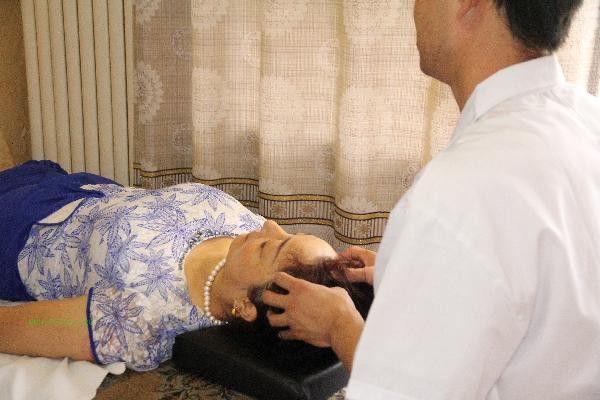Supplementing qi and blood after giving birth can be improved through dietary regulation, traditional Chinese medicine regulation, moderate exercise, acupoint massage, and regular sleep patterns. Postpartum Qi and blood deficiency may be related to factors such as childbirth blood loss, lactation consumption, and physical weakness, usually manifested as symptoms such as fatigue, dizziness, and pale complexion.
1. Dietary regulation
Postpartum consumption of foods such as red dates, goji berries, and longan that nourish qi and blood can be moderate. Red dates are rich in iron, which helps promote hemoglobin synthesis. Goji berries have nourishing effects on the liver and kidneys, while longan can nourish the heart and spleen. These ingredients can be stewed with chicken, lean meat, and other soups and consumed 3-4 times a week. breastfeeding mothers should pay attention to avoiding excessive consumption of warm ingredients to prevent overheating.
2. Traditional Chinese Medicine Preparation [SEP]: Traditional Chinese medicine formulas such as Bazhen Tang and Siwu Tang can be used under the guidance of a doctor. Bazhen Tang is composed of ginseng, Atractylodes macrocephala, Poria cocos, etc., and has the effect of nourishing both qi and blood. Siwu Tang contains ingredients such as Angelica sinensis and Chuanxiong, which are suitable for postpartum women with blood deficiency. Traditional Chinese medicine should be treated based on the differentiation of physical constitution and avoid self medication. Before using traditional Chinese medicine during lactation, it is recommended to consult a doctor as some herbs may affect the baby through breast milk.
3. Moderate Exercise
After 6 weeks postpartum, light exercises such as walking and yoga can be performed. Moderate exercise can promote blood circulation and improve the circulation of qi and blood. Suggest starting from 10 minutes per day and gradually increasing to 30 minutes. Avoid intense exercise that can cause depletion of qi and blood. Pay attention to keeping warm during exercise and avoid getting cold. Postpartum women undergoing cesarean section should wait for the wound to fully heal before starting exercise.
4. Acupoint massage
can massage acupoints such as Zusanli and Sanyinjiao to replenish qi and blood. Zusanli is located at the four horizontal fingers below the knee. Pressing it for 5 minutes every day helps to strengthen the spleen and invigorate qi. San Yin Jiao is located three inches above the tip of the medial malleolus, and massage can regulate the liver, spleen, and kidney meridians. When massaging, the intensity should be moderate, and it is advisable to have a sour and swollen feeling. Postpartum weak individuals should not massage for too long.
5. Regular sleep schedule







Comments (0)
Leave a Comment
No comments yet
Be the first to share your thoughts!